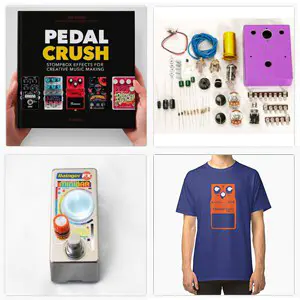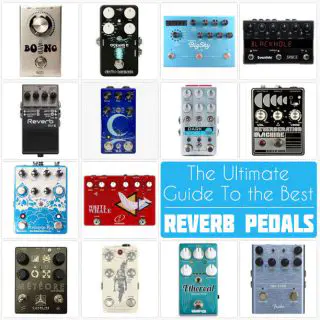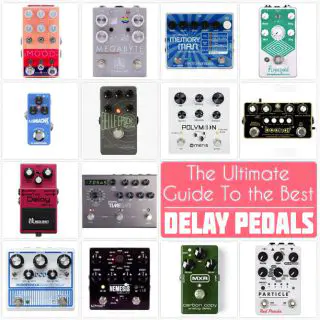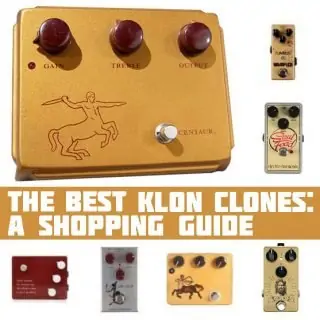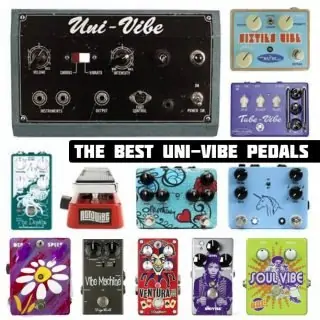Jam bands, improvisational music classes and Philip Glass’ five-hour opera “Einstein on the Beach” are just a few of the unexpected influences cited by Brooklyn punk outfit Big Ups. In fact, the band – known for chaotic live performances and a sound that recalls classic 80s hardcore and 90s post-hardcore – are not hesitant to admit that some of them used to listen to Phish or that they don’t really consider themselves a punk band. “The ‘punk’ tag probably won’t even apply soon,” frontman Joe Galarraga tells The Deli. “Many of the new songs we’ve been working on are a lot slower.”
Despite these admissions, Big Ups are at the forefront of a rising group of Brooklyn bands eschewing lo-fi pop, shoegaze or electro for something heavier and more direct. We asked them a few questions about recording, guitarist Amar Lal answered them.
How much of your recording is done at home versus in the studio?
Our most recent record was recorded entirely at Excello Recoding in Brooklyn with our good friend Charles Deschants, but the whole thing was mixed in my apartment.
What are the pieces of equipment that you find particularly inspiring when recording at home?
Pepperidge Farms Goldfish (Original Flavor) and Hershey’s Kisses are my go to’s when I need a pick-me up after a long day of home recording. I also enjoy my Dynaudio BM5A monitors.
If you use a studio, what do you record there and what do you record by yourself and why?
We track our records mostly ‘live’ with everyone playing together, so we go to studios mainly to benefit from large spaces that sound great, where we can be loud and all play in the same room together. We’ve done some overdubs or creative interlude tracks outside of the studio, but the majority of our material is tracked at studios.
What one piece of hardware/software would you most like to add to your recording setup (cost not an issue)? Why?
I recently bought into the hype around analog summing – I do think I hear a difference in both the stereo imaging and the stereo width as compared to summing in the box. Both the Burl B32 Vancouver and the Rupert Neve 5059 Satellite look and sound great, although the Dangerous 2-Bus LT seems a little more realistically priced. I also would love to get my hands on a Mytek DDD603 Meter or something similar.
It’s great to have outside creative vision to shape a project, but I don’t think we’re the kind of people who rely on it. We have a creative direction in mind for our work, and mostly what we look for in an engineer or engineer/producer is someone who can help us realize it without disrupting it, but maybe offer some little suggestions along the way. That said, who wouldn’t want to know what it was like to work with Rick Rubin??
Do you use rack effects or guitar pedals to forge your own sound? If you do, please list the ones you use the most and let us know why you love them.
I used to use a lot of guitar pedals to hide the fact that I couldn’t play guitar, under the guise that I was trying to make cool sounds like Tom Morello. When we started this band, I wanted to strip all of that away for simplicity’s sake, so I only used one distortion pedal. Now I use mostly tone-shaping pedals to get differently aggressive sounds – a Fulltone OCD, a Boss DS-1, an EHX NYC Big Muff re-issue, and an MXR 10-band EQ (in that order) are my go-to’s, each for different sonic reasons. When you step on all of them at the same time it gets really loud, so that’s cool too.
Who determines the direction and style of your recordings?
We all collectively do, based on the music and sounds we like, and the reference tracks we’re working towards.
Is there a person outside the band that’s been important in perfecting your recorded or live sound?
Paul Howells mixed some of our formative recordings, and really helped us start to work towards capturing our live sound on tape.
What other artists would you say have had the biggest influence in your approach to recording? Why?
Dan Francia (Flagland) has been the yin to my recording yang. He and Drew Guido (Montes Rook) have both taught me the importance of spending time getting the ‘right’ sound to tape, as opposed to fixing it in the mix.
Would you say that your live show informs your recording process or that your recording process informs your live show? Both? Neither?
We try to capture the energy of our live shows in our recordings, but some of the ideas that arise from experimentation in the studio and the way we capture or mix the song also shapes the way we play the song live.
Is there a piece of equipment that you find particularly useful on stage?
Beer. (Rolling Rock or Miller High Life preferred)
With bands doing more of everything themselves these days (recording, performing, self-promoting, etc.) and the evermore multimedia nature of the world, how much effort do you put into the visual component of your band – fashion, styling, photography, graphic/web design, etc.? Do you do these things yourself or is there someone that the band works with?
We all dress ourselves in the mornings, and wear those clothes to the show. Sometimes I have to text Joe to make sure we’re not both wearing our Roomrunner or Pile shirts, though.
What do you find to be the most challenging aspects of the recording process? On the flip-side, what aspects are the most rewarding?
The biggest challenge for us is to find a take that we all feel we performed well on. Sometimes it’s the first take, and other times you have to play a really exhausting song 6 or 7 times. We also recorded our entire record over 3 days, so there were some really long days, which can be rough. But it’s worth it, since at the end of it you have this semi-permanent thing that hopefully represents an interesting version of a thing you created; all these 1’s and 0’s stored on a computer or iPod that will outlive you and represent your name and your creations until people decide you’re obsolete and irrelevant.















![Big-Ups-5[1] Big Ups 51](http://delicious-audio.com//wp-content/uploads//2014/07/Big-Ups-51-612x408.jpg)
![dynbm5a2pr[1] dynbm5a2pr1](http://delicious-audio.com//wp-content/uploads//2014/07/dynbm5a2pr1-300x300.jpg)
![xl_bb174024f7e588aab1e66bbd8f6b182c[1] Dangerous 2-Bus LT](http://delicious-audio.com//wp-content/uploads//2014/07/xl_bb174024f7e588aab1e66bbd8f6b182c1-612x132.jpg)

